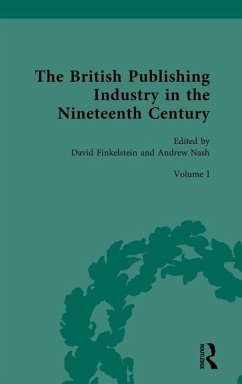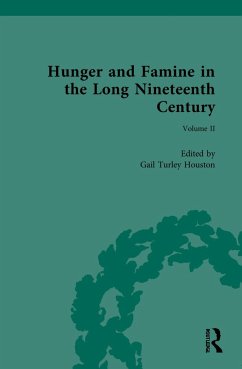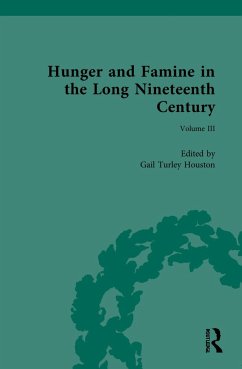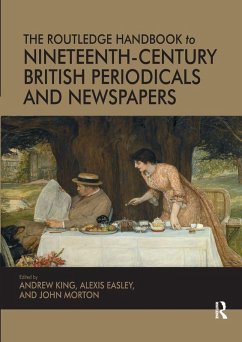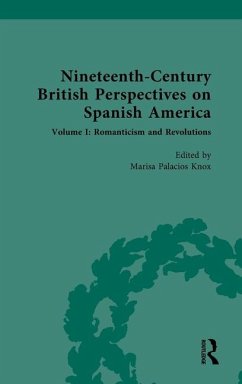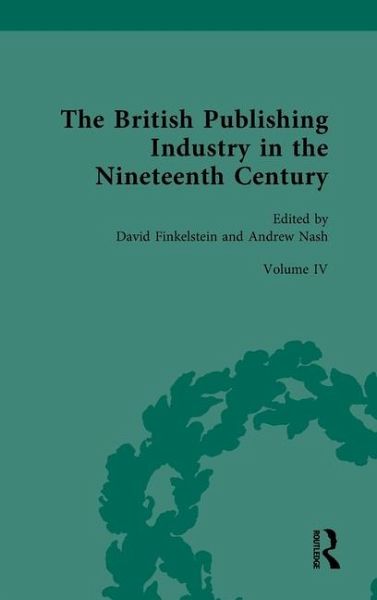
The British Publishing Industry in the Nineteenth Century
Volume IV: Publishers, Markets, Readers
Herausgegeben: Finkelstein, David; Nash, Andrew
Versandkostenfrei!
Versandfertig in 6-10 Tagen
133,99 €
inkl. MwSt.
Weitere Ausgaben:

PAYBACK Punkte
67 °P sammeln!
This volume documents how the nineteenth-century British publishing industry responded to and helped shape changes in readership and reading markets in the period. Focusing on broad social, economic and cultural changes, it traces the impact of improvements in transport and communication networks, which dramatically affected the production, distribution and retail of books and periodicals, and the implementation of the Education Acts of 1870 and 1871 which forced publishers to direct their attention to new markets and adopt cheaper publishing formats. The growth of circulating libraries, the r...
This volume documents how the nineteenth-century British publishing industry responded to and helped shape changes in readership and reading markets in the period. Focusing on broad social, economic and cultural changes, it traces the impact of improvements in transport and communication networks, which dramatically affected the production, distribution and retail of books and periodicals, and the implementation of the Education Acts of 1870 and 1871 which forced publishers to direct their attention to new markets and adopt cheaper publishing formats. The growth of circulating libraries, the revolution in serial and part publication, and the spread of railway bookstalls are among the many topics addressed in this volume which concludes with a section that documents the new pressures of censorship that arose as educational reforms provoked anxieties over the spread of cheap 'pernicious' literature.






